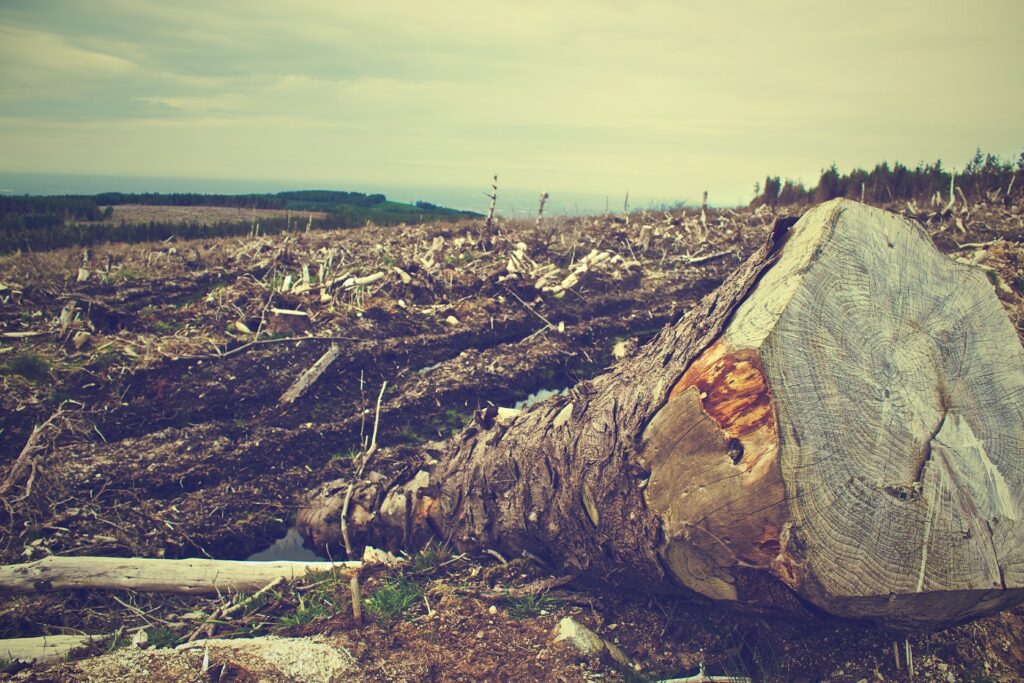
To make money for their families, many cocoa and coffee producers rely only on selling in the European Union Market. The European Commission recently suggested a new regulation for deforestation-free products. Fairtrade International’s response to the new European Union draft legislation on combating deforestation argues that while it is a step in the right direction, the legislation must take into account smallholder cocoa and coffee farmers.
- The European Union, as the global green leader, is taking action to combat deforestation. Farmers and producers of cocoa, coffee, palm, soy, timber, and even cattle raisers could face exclusion from the EU market if they violate the new regulations. (more…)
- Fairtrade demands that the European Union must provide a fairer option for small cocoa and coffee farmers that rely on the European Union market, rather than just offering a sweeping regulation that ignores social wellbeing and that may ban small farmers from EU Market access. (more…)
Background Information: What is Fairtrade?
Full Reports: A just transition for cocoa and coffee smallholders to access a deforestation-free and forest degradation-free European market, Regulation of the European Parliament and of the Council
European Union’s Action Against Deforestation
Farmers and producers of cocoa, coffee, palm, soy, timber, and even cattle could face exclusion from the EU market if they violate the proposed regulations drafted by the EU. Here’s what you need to know about the EU’s proposed regulation:
- The European Union is one of the major consumers of Forest Risk Commodities or the globally traded raw materials from tropical forests that are contributing to the loss of biodiversity and deforestation. Since the expansion of agricultural land is one of the main reasons for deforestation, the EU spearheaded the drafting of regulations to prevent the further loss of forest ecosystems.
- The regulation intends to increase the demand for legal and “deforestation-free” products while minimizing the consumption of products derived from deforestation-related supply chains
- Violators will be banned from entering the European Union market in order to decrease sales of products that rely on deforestation.
Fairtrade’s Concerns and Demands to EU’s Proposed Regulation Against Deforestation
Fairtrade is concerned that the EU’s proposed regulation to combat deforestation may bypass fairness and social justice for cocoa and coffee smallholder farmers, farmers whose farms are five acres or less. Here’s what you need to know about Fairtrade’s concerns and demands:
- Many coffee and cocoa farmers rely on the EU market for their main source of income. However, the new regulation will severely affect them due to its failure to take into account the different sizes of operations. Fairtrade believes that banning smallholders’ products is not the key to solving deforestation.
- Fairtrade’s other concern is that the number of cocoa and coffee smallholder farmers that could be affected negatively is not specified. Many could lose their jobs after the law’s creation (December 2020). This appears to be not fair, since agricultural deforestation was allowed at that time.
- Removing their access to the European Union market may force these impacted cocoa and coffee smallholder farmers to seek alternative sources of income, which may lead to illegal and unregulated activities that might also contribute to biodiversity exploitation and deforestation.
- Fairtrade demands the European Union guarantee the value of cocoa and coffee smallholder farmers by listing 6 recommendations for the drafted EU regulation.
- According to the UN’s Sustainable Development Goals (SDG), the environmental aspects of laws should not take priority over the social and economic aspects. Fairtrade demands an assessment focusing on the compliance capabilities of cocoa and coffee smallholder farmers towards the new policy. The estimated number of cocoa and coffee farmers that would be affected and possibly banned from the EU market access must also be included in the assessment.
- Fairtrade demands that the priority of the EU’s regulation must be a collaboration with their partner countries to assess the drivers of deforestation so that a proper solution and necessary actions can be implemented. Fairtrade argues that rather than focusing on the products as a means of reducing deforestation, the EU must collaborate with other countries to address the root causes.
- The relationship between cocoa and coffee smallholder farmers and their retailers/traders should be strengthened by the regulation. It should also provide the necessary support for farmers to be able to adapt to deforestation-free farming.
- Fairtrade recommends providing additional requirements to the proposed legislation that includes that respect and tenure rights should be provided to local communities and indigenous people.
- Fairtrade suggests ensuring that data ownership is shared between the producer organizations and their members. This can be done through the use of a management system that can handle the tracking and management of their data.
- Cocoa and coffee smallholder communities in EU partner countries must be provided with financial support for their adaptations to European Union’s new sustainability and deforestation-free requirements.
Sources:
“The EU’s Deforestation Proposal Must Do More for Smallholder Farmers.” Fairtrade International, February 16, 2022. https://www.fairtrade.net/news/the-eus-deforestation-proposal-must-do-more-for-smallholder-farmers
